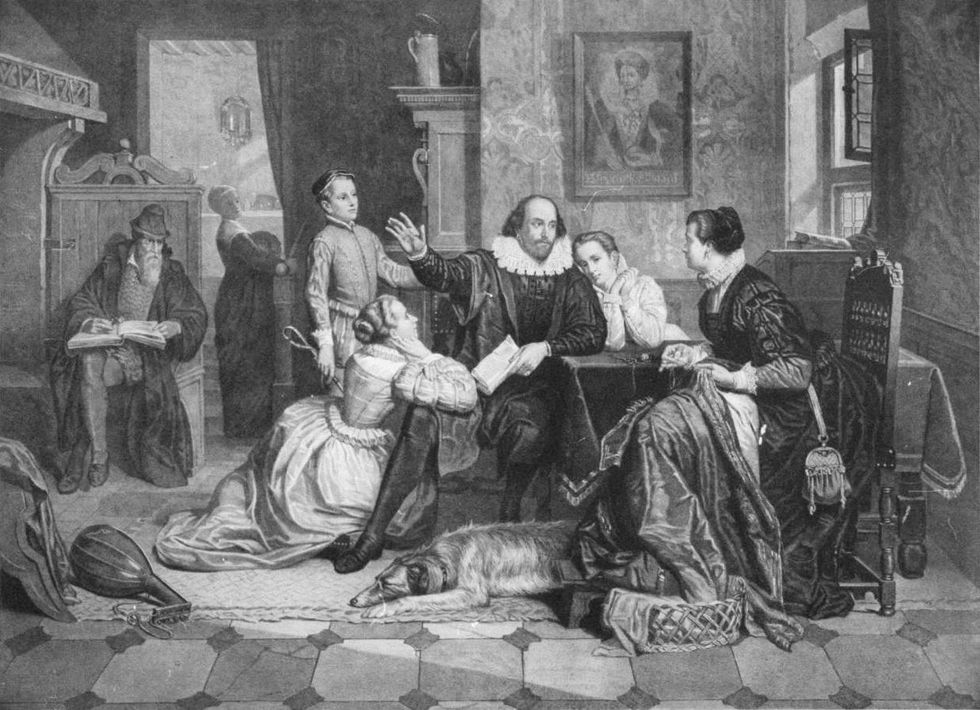The works penned under the name of Shakespeare are probably some of the greatest pieces ever written as they have been found to transcend time and culture, unifying the concept of a human race. These works appeal to human nature and truth, pointing out the heart and mind of every person in each piece. Yet, amongst it all, the authorship question still remains of whether or not the man that the literary world knows as Shakespeare even walked our planet. Records show he existed, but it is impossible for a man of such meek beginnings to create such insightful pieces in the span of 51 years.
Many anti-Stratfordians argue that it is impossible for Shakespeare, a man of humble beginnings and little education, to be able to write such extensive works of art. Instead, it must have been someone with exceptional education with intimate knowledge of the law, royal court and other aristocratic politics. Due to his low-status profile, it is easy to question if there is any evidence if he even received a proper education much less write all the famous works he is known for.
One of the popular candidates is the 19th century philosopher and scientist, Sir Francis Bacon, due to patterns between Shakespeare's plays and Bacon's works such as the large number of legal references in Shakespeare's works in reflection to Bacon's strong legal background. Scholars such as Isaac Hull Platt believe that Bacon left ciphers in Shakespeare's texts such as the obscure Latin word that appears in "Love's Labour's Lost", honorificabilitudinitatibus, thought to be an anagram of Hi ludi F. Baconis nati tuiti orbi, translating to "these plays, the offspring of F. Bacon, are preserved for the world." Time and time again, anti-Stratfordians have found many candidates in place of Shakespeare, including the famous poet, Edward de Vere, the 17th Earl of Oxford. Due to his wide travels in Italy and intimate knowledge of Jacobean politics, he is thought to fit the Shakespearean authorship. There is also Christopher Marlow, whose case is interesting as theorists suggest that he faked death, allowing him to escape trial for being an atheist; he emerged as "Shakespeare" to continue his writings.
There is an abundance of evidence that suggested Shakespeare's existence, and I full-heartedly believe that Shakespeare existed as a person. There are written references to Shakespeare as an actor, playwright and even member in the troupe of the Lord's Chamberlain's Men. Additionally, there are written and signed records of his marriage to Anne Hathaway and the birth of their children do exist proving his existence. These bits and pieces of written records show such a man existed. But while I do believe he made his way up the class ladder, I do not believe he is the author of every single play ever penned under the name of Shakespeare.
In each of Shakespeare's pieces, there are points brought about that are still relevant to this day which is why he may considered one of the most genius writers of all time. In "Henry IV," the old notion of honor—associated with chivalry and blood relations in the Middle Ages—is given a new meaning as the character, Falstaff, questions if it is mere "air" or something tied to taking up one's social responsibilities as Prince Hal comes to accept. In "Merchant of Venice," Shakespeare raises the question on morality—is there a place for compassion and forgiveness in a voracious profit-before-all-else system, as represented by the moneylender Shylock? In "Romeo and Juliet," Shakespeare brings about the conflicts of whether it is okay to choose individual happiness over group traditions, and whether or not humans choose their own destinies.
How can one person possibly single-handedly question yet entertain the system and get away with it? In fact, these plays were enjoyed by thousands, whether they were paupers or princes. This leads to my conclusion that while Shakespeare may have been a person, his works were written by groups of people, some including him and some not. The composition of 37 plays and 154 sonnets within the span of 51 years is no small feat, especially when his educational origins were almost nothing. Shakespeare was a group of people that included Francis Bacon and Edward de Vere. Together they penned playwrights under one name; the combination of the greatest literary minds made plays that still considered relevant to this day. So while these works may have been conducted by one humble man, it was not without the help of others.



















